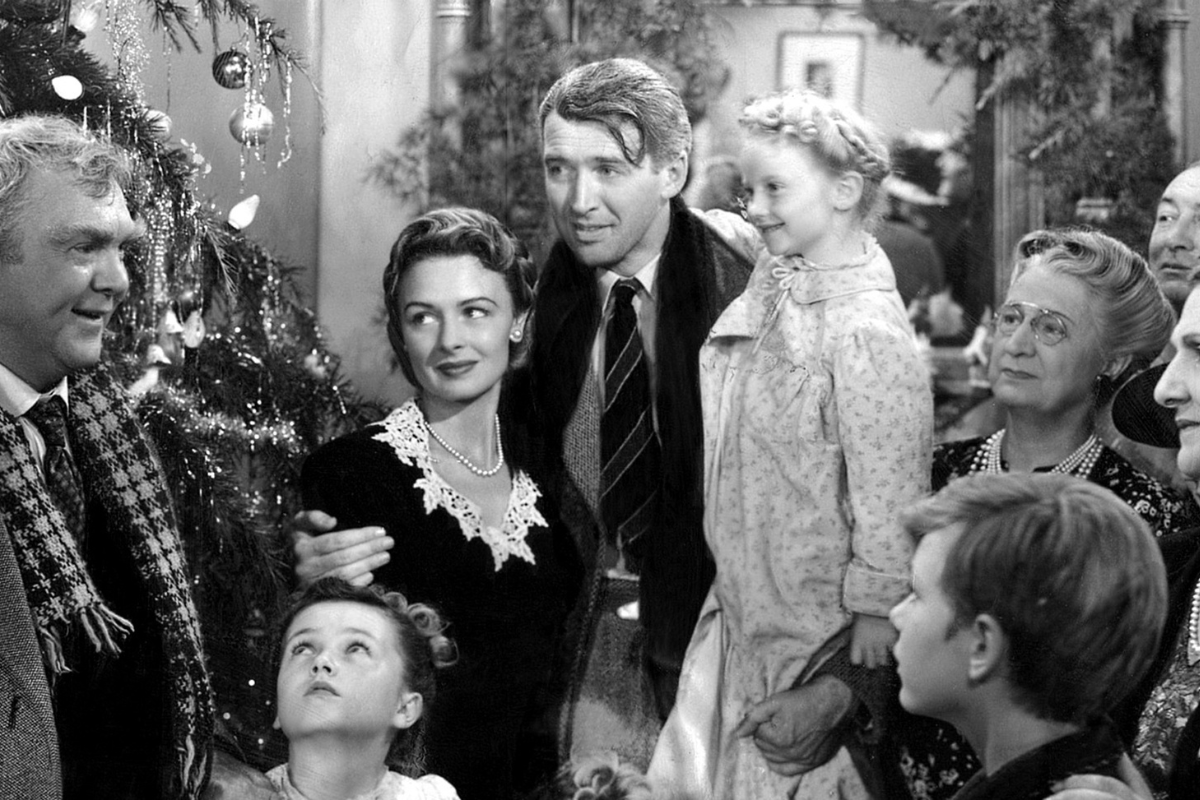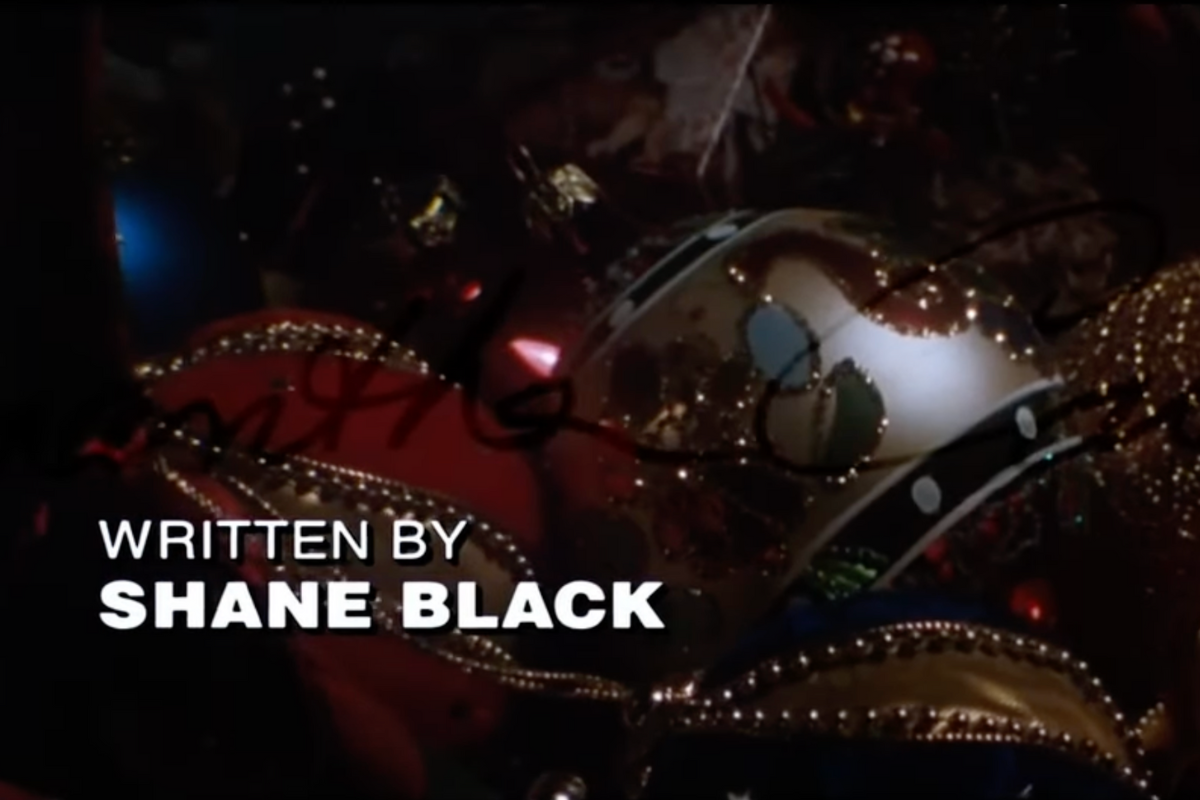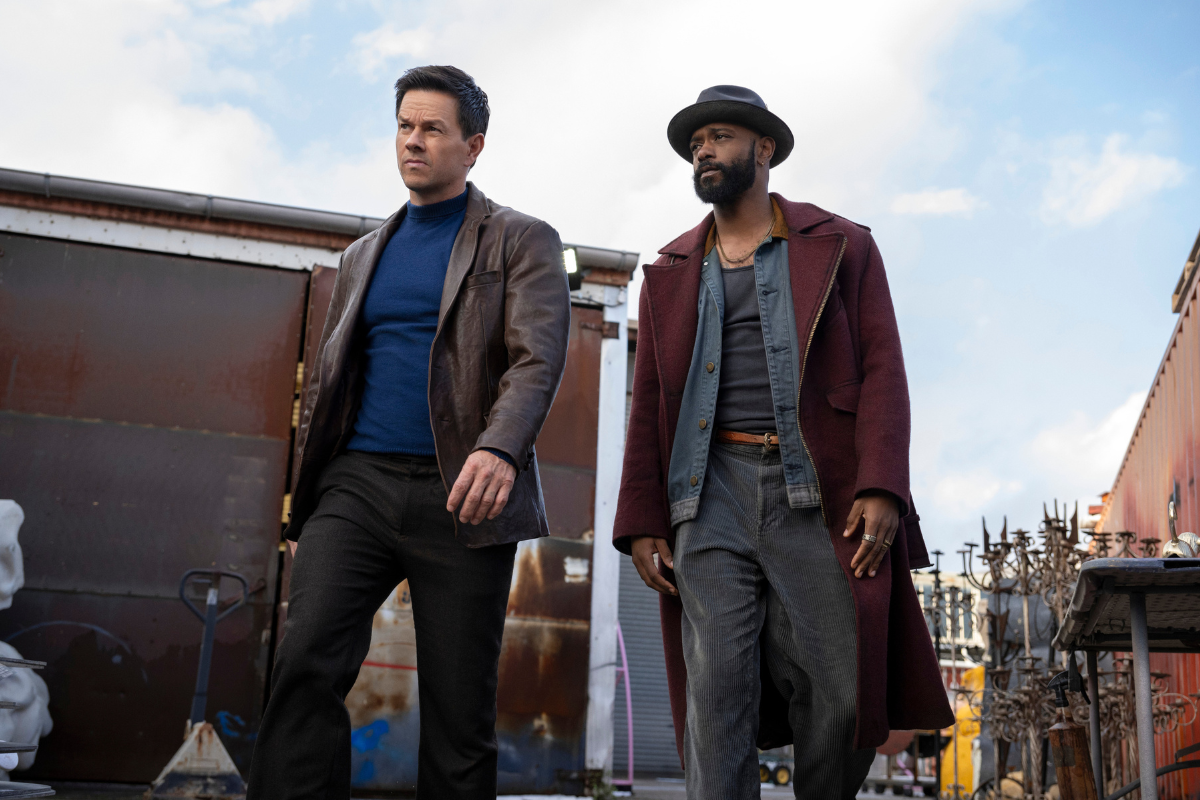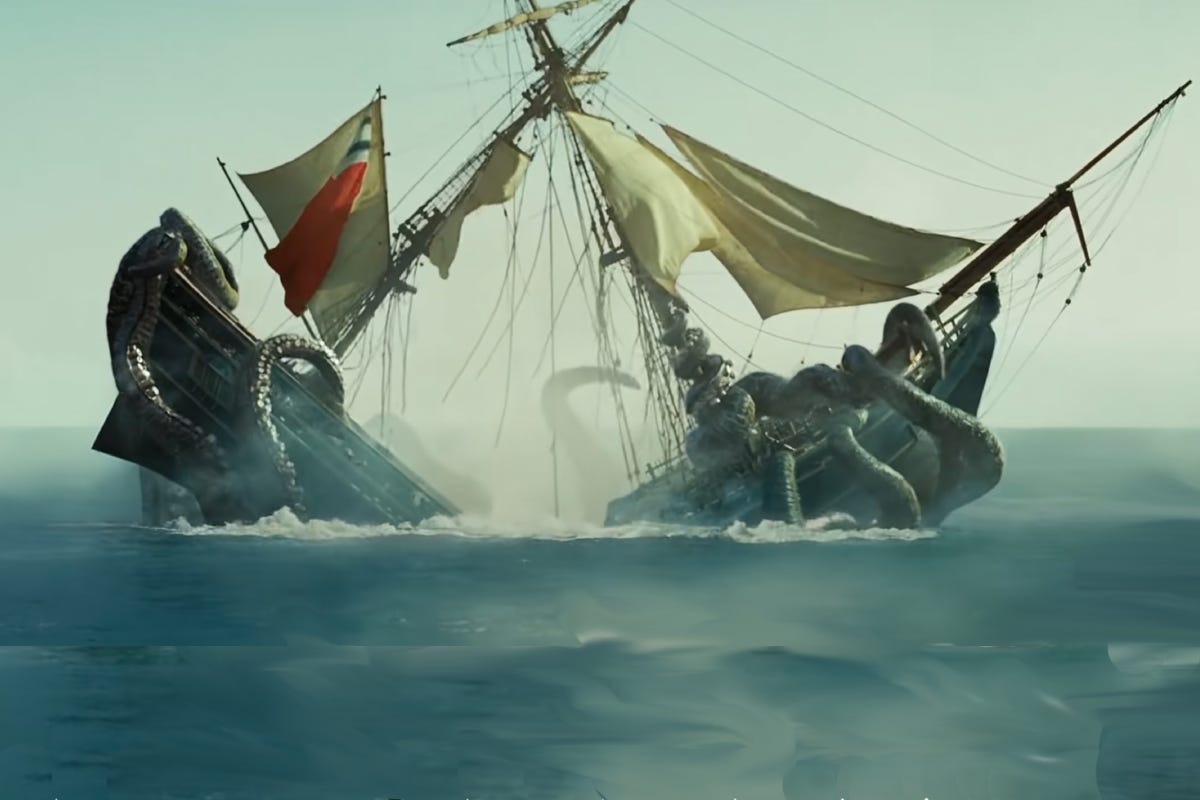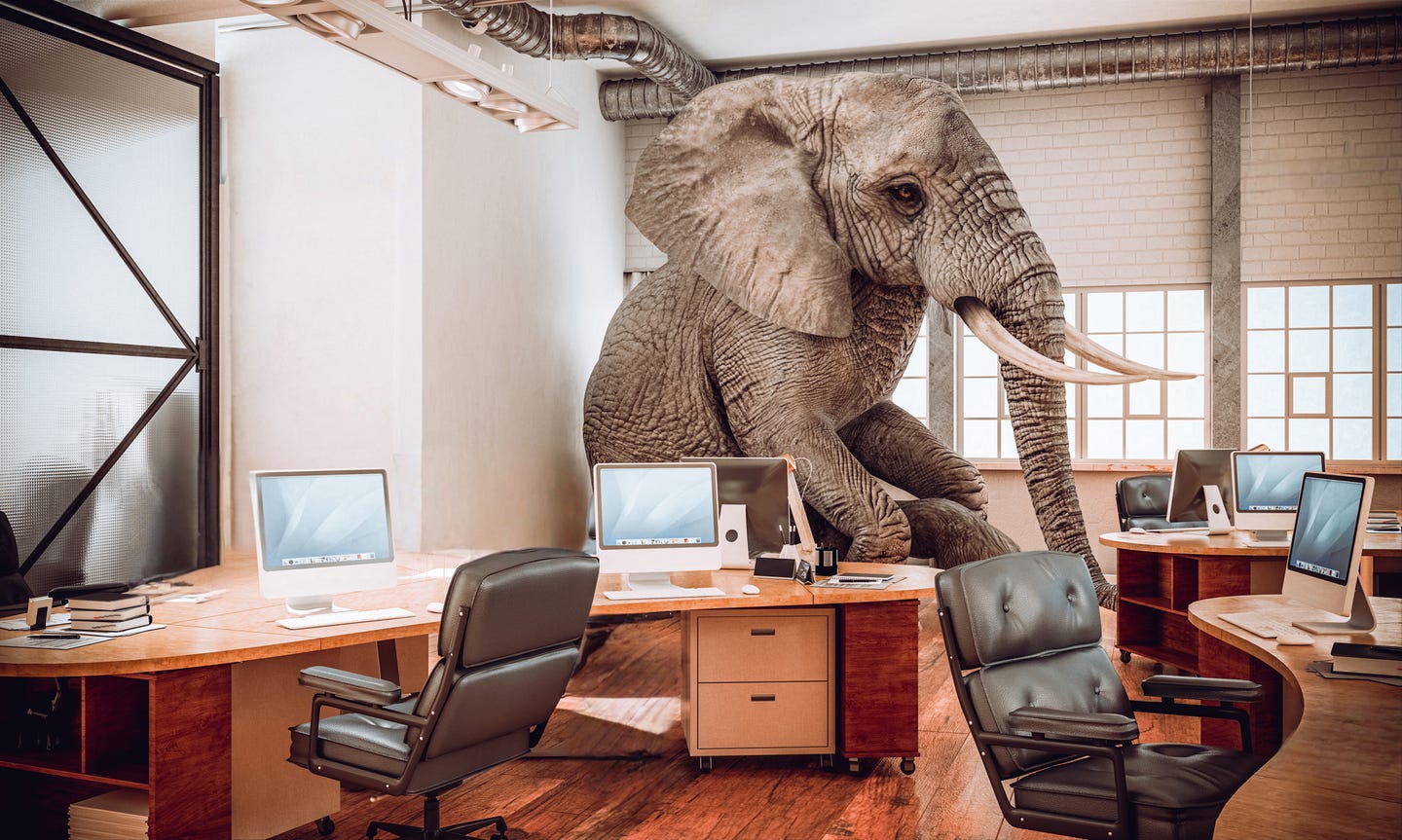Breaking & Entering: How to Tell Stories That Change the World – David Craig Discusses “Apocalypse Television: How ‘The Day After’ Helped End the Cold War”
Discover the making of the most-watched TV movie ever, and perhaps the most impactful. As challenging to get on the air as it was unsettling to watch. As captivating as it was controversial. It swayed public opinion and shifted government policy. A prolific producer and an expert in social media’s creator culture, if anyone knows how to tell and sell world-changing stories, it’s David Craig.
During the height of the nuclear arms race between the United States and the Soviet Union, a television movie called The Day After depicted the devastating consequences of a nuclear holocaust on the residents of a small town in Kansas.
On the night of its 1983 broadcast by ABC, over 100 million people were glued to their TVs in nearly 39 million households.
It captured 62% of the viewing audience according to Nielsen ratings.
Unlike Orson Welles' 1938 radio drama, "The War of the Worlds," which terrified audiences with its fictional alien invasion, The Day After, directed by Nicholas Meyer and written by Edward Hume, portrayed a very real threat that hit close to home. The film was influenced by actual events such as the partial meltdown at the Three Mile Island nuclear plant in Pennsylvania four years earlier, and the existence of Soviet missiles that could reach the United States in just thirty minutes.
News reports said that during the broadcast, the streets were empty, and noted that, “almost no one wanted to watch the end of the world alone.”
Apocalypse Television: How 'The Day After' Helped End the Cold War, written by David Craig, is an engrossing, behind-the-scenes account of the extraordinary events surrounding the making of, backlash against, and political fallout from potentially the most important and impactful television broadcast ever. Originally aired forty years ago, it remains the highest rated TV movie in history. And perhaps one of the most impactful.
Weeks after watching the film, [Ronald] Reagan appeared to pivot to new rhetoric and policies toward the Soviets. His ambitions aligned with those of the newly elected Communist Party Secretary Gorbachev to end the arms race. For some historians and scientists, the film was arguably a critical factor in saving the world from nuclear oblivion, at least for a few decades.
From Apocalypse Television by David Craig
If you’re looking for inspiration to find your passion and purpose as a storyteller, David's life might be the perfect guide. As a producer and television executive, David worked on more than 30 films, TV programs, documentaries, and stage productions. During his career, he received two personal Emmy nominations, and his projects garnered over 70 Emmy, Golden Globe, and Peabody awards and nominations. David then chose to pursue academia, becoming one of the world’s leading scholars of the "emerging creator" industries, an expert in social media entrepreneurs and influencers harnessing global platforms.
Throughout his journey, David has remained steadfast in his belief in the power of storytelling to entertain, educate, and inspire change. I’m fortunate to know David, and excited to share his latest book and advice for writers and filmmakers eager to tell stories that can make a difference.
This interview has been edited for length and clarity.
Barri Evins: I truly enjoyed reading ‘Apocalypse Television.’ I can't imagine anyone with a better background and diverse perspective than you, David, to tackle this true ‘making-of’ story and bring it to life in a way that seamlessly interweaves the behind-the-scenes industry politics with the historical context and geopolitical backdrop, and make both threads equally riveting. What inspired you to undertake this endeavor?
David Craig: I grew up in the South during the Civil Rights Movement, and watched the TV movies produced by ABC executive Brandon Stoddard in my classroom, as they became educational tools. That became the impetus for me coming to Hollywood in the first place. The man who created those movies was my inspiration to come to Hollywood to be a teacher. That's what I thought Hollywood mainly did. I was shocked when I discovered that wasn’t why people go to Hollywood! Fast forward, thirty years later, I’ve now produced 25 TV movies, many designed for the very same reason, to hopefully reach audiences around social issues, human rights issues, literature, and history, but also to be distributed to classrooms, which most of my movies were.
I went back to school and got a Ph.D., and I finally got to interview Brandon Stoddard. That's when I discovered there was an even richer, more human story behind the scenes of the making of The Day After. I spent the last ten years trying to figure out the best way to tell that story. Like many of us who have worked in the industry, we've all had moments in our careers where we had to put everything on the line. We had to figure out every loophole, every crack, every fissure, to try to get the story told that we passionately believe not only is right and important, but in this instance, vital to save the world. Right before the pandemic, I decided I was going to just sit down and write it. I'd written many academic books at this point and thought, ‘I know I can type; let me see if I can tell this story.’
Barri: This is beautifully written and a truly engaging read. As nonfiction, it incorporates the elements of narrative storytelling that draw us in – characters that are dimensional, flawed, and driven by personal motivations. Relentlessly escalating conflict, with astonishing twists. The release of the film falls near what we would consider a midpoint, and there is satisfying falling action. Did you set out to frame this in a dramatic structure, or did you find that the true story inherently lent itself to that approach?
David: I had developed the approach of blending the ‘behind the scenes’ with the larger, political, social, cultural conditions in my dissertation. It was about how Queer TV movies had appeared two decades before sitcoms like Will & Grace and Ellen. These films moved the dial and raised awareness around Queer rights in the early 1970s. I always felt it was important to underscore that Hollywood is part of a much larger political enterprise. Everything we’ve ever done in Hollywood has always been political in the cultural sense, while not in the explicitly political terms of Washington DC. That's the approach I've taken in my academic writing, to situate things beyond the industry itself, or the particular players and agents involved in storytelling, but to place them in a time and in a world where these things were possible, and see if we can find out what those strategies were that could be emulated today, even though the media and the world has changed. That's kind of my M.O.
There wasn't any better example than this story, where we saw the Nuclear Right, the Religious Right, the Conservative Right, and the White House become actively involved in trying to manage the anti-nuclear backlash of the movie. The White House press campaign went across every possible medium and platform to try to hijack the message. I discovered the two rogue publicists in my research. These activists-slash-communication strategy experts advocating for the nascent Nuclear Freeze movement found a way to build an even bigger audience than could have been imagined.
Barri: As an expert on global social media and its expanding impact on the mainstream entertainment industry, do you believe user-generated content can tackle issues and make a significant impact?
David: Over the last ten years studying social media and what we now talk about as ‘creator economy’ or ‘creator culture,’ I see these as totally separate from Hollywood narrative storytelling. Both exist simultaneously in our world, but they occupy very different functions in our lives, and our relationship to media. We still have powerful engines of narrative storytelling, particularly with streaming platforms that now extend well beyond our own borders and offer simultaneous viewing of content all around the world. This emulates a lot of the same form and storytelling strategies that you and I have used and worked in for a long time.
In the social media space, I've come to understand the world of creator culture as not centrally based on user-generated content so much as the ability of creators to use these platforms and to generate content that builds a community. A community they can then monetize in many different ways. But the content serves a larger purpose, which is to represent and reflect their interests that the community shares. It’s a dynamic that is so different from traditional narrative storytelling, but I am convinced it will continue to be as powerful as it has been since we told stories by the campfire. It's the ‘social’ aspect of social media that I think makes that content something quite different.
Now does that mean that social media can't play some sort of a larger role in terms of social change and social impact? In fact, as we speak, I’m conducting interviews with people at the UN, USAID, Save the Children, Amnesty, at numerous organizations, NGOs, nonprofit groups, and impact groups, all of whom have been finding ways to align with partners and sponsor creators who share their interests and values around changing the world. So social media is going to be able to change the world. There are creators for change who very much care about the same sort of issues, and the use of technology, just like Brandon Stoddard did.
Barri: That was an uplifting answer! I spent 25 years working in children's literacy, and I believe in the power of storytelling in the nonprofit sector. I'm thrilled you’re working with people in cause-related storytelling because I believe it is a powerful format for change.
David: I think about the creators slightly differently from the way I do storytellers. They are, for lack of a better word, online community organizers for profit, but they have a lot in common with nonprofit community organizers, who all need to figure out how to use online and social media more effectively. And no one knows how to do that better than creators.
Barri: In an era when we are flooded with content, more than the most avid and eager viewer could possibly keep up with, do you feel it's possible for a significant issue story to have anything approximating the immense impact of The Day After, which was released in the Golden Age, with three broadcast television networks?
David: I do. The exact dimensions and contours and strategies involved will be slightly different. The example I used in the book’s prologue was the film Chernobyl being made available to Russian audiences who were banned from seeing it, but it scaled very highly online. One of the larger consequences of that is it changed the way Russians understand their own history, although it’s still an extremely closed society, and hard for much change to occur. To use a line from a movie I produced, ‘You can lose the battle and still win the war.’ This war will never go away.
The social, cultural, and political wars of our time are going to require constant effort and battles. But I do believe that our technology has ways to create social change and impact. It just may not be in the form of this singular, one night event, that captured the imagination of the American public all at once. But the inverse is also true – that technology is now available to people in the palm of their hand and able to reach everyone – five billion people around the planet, two-thirds of the population.
Barri: Clearly an immense amount of research, including amazing interviews with key players, went into this book. You bring Stoddard, an iconic figure in the television industry, to life in these pages, along with the focus of his career, ‘in pursuit of ratings, revenue, and responsibility.‘ It concerns me that we might not see this again.
David: I believe there continue to be many executives who work at studios, networks, and streamers, who share an intense, deep passion for social change and progress. I don't think this movie was a singular event. I don't think this was an exceptional group of people in that one moment in history. I believe there are numerous executives right now trying to figure out their own version of what Stoddard understood – that if you can bring revenue to the firm but also make the world a better place, the combination is an extraordinary thing, and it’s something to strive for. I'm actually 100% convinced that countless executives – who rarely are featured because we don't even have a way to describe these roles – take their positions and their responsibilities very seriously. I‘m convinced that they are still finding ways to create those opportunities.
This book is meant to be as much a tribute to that generation of television executives, as it is a DIY for today's media makers and storytellers to figure out their own strategies to make the world spin forward.
Barri: The desire to tell impactful, meaningful stories has driven many of my projects. It has not always made them easier to move forward, but it has enabled me to package them, finding others who shared my passion for a socially relevant story within a compelling cinematic narrative. It seems clear from the book that you have a very positive outlook on the power of storytelling to continue to impact our lives and our future. What should writers know trying to navigate the current landscape with so many outlets for content?
David: Every media industry needs to be solvent – profitable and successful. With that understanding, figure out where those opportunities are to get that story told, that content made. You and I both remember the height of the TV movie era, when 90% of TV movies were spectacularly exploitative, designed mainly to be ratings hits – in their own way the worst examples of what media is capable of. But, in that same vein, there were opportunities where formats like the Movie of The Week, the TV novel, and the miniseries created the means to make spectacle, an event of high-concept stories that in turn raised awareness, maybe even helped move policy and create change out in the world.
What I find often is a lot of storytellers are well intentioned, motivated, and very interested in the social issues and concerns of our day and time, but have very little knowledge of how the industry itself operates and the fundamentals of how the industry works. If you can’t speak in that language, if you’re not fluent in Hollywoodlish, you’re not going to be able to hack and hijack Hollywood in order to create change.
Barri: Did you say ‘Hollywoodlish?’ I love that!
David: You know as well as anyone, we have our own language, our own ways of thinking, talking, networking, and operating. It’s a deeply networked society. You have to not only know how this works, but know who makes it work, and then figure out how to get to them. It starts with understanding that fundamentally, the people who work at these companies are human beings just like you and me – passionate, caring, and in many instances share our values, our ideology, and our politics. They are eager to find a way to align around those concerns, but they've got to do so within a system that also demands that they find a way to make it work for their corporation. And we need allies, perhaps more than ever these days. The world is a bit of a mess again. We’re back on the brink.
Barri: The backdrop of current events around the world added to the impact for me when I watched The Day After while reading your book. It felt scarier and disconcerting. In the prologue, you reference the war in Ukraine and the threat to the Zaporizhzhia nuclear power plant. The contemporary relevance was stunning.
David: It got a little uncanny and unsettling. I would be writing a chapter, then take a break and turn on the news. And there was my chapter. Only it was live.
Barri: It seems clear that both your personal perspective and the message of the book is a belief in the power of storytelling to impact our future. What urgent social issues would you like to see explored?
David: Much like the thousands of films that attempted to address the horrors, fears, and possibilities of global nuclear disaster, I think there is no singular event that's going to help us turn around and resolve what is impending climate collapse. We’re witnessing these effects as we speak. But I have a palpable fear that we won’t make it to the middle of this century if we don't do something quickly and profoundly to harness our technology to reverse the effects of climate change.
Barri: Do you have any advice for writers hoping to harness their passions in search of stories that make a difference?
David: I think today's impact storytellers might want to start with finding their community first, and then figuring out the best way to leverage that, whether it is climate change, or nuclear winter, the brutality of war, or income inequality. There is now a medium that allows us to find millions of other people who share the same concerns. Tap into them through storytelling, or any other form of engagement you can find, and turn that into a bigger way to reach people.
I'll end with this one note. In my time as a TV movie producer and a Queer activist, I became very actively involved in marriage equality, as early as the late 1980s. At that time, only about 8% of the population was even aware of this, much less had any interest in making sure that everyone shared the same rights as married couples. Forty years later, we have marriage equality – at least for now.
Now we have different fights. And anyone can join the battle, but it's not just about being smart; it's about being strategic – punctuation mark.
Barri: That's the perfect punctuation for this discussion! Thanks so much for your time, David, and for your work in telling this story. It's not only a page-turner of a read, but it truly can educate and inspire the next generation of storytellers.
Apocalypse Television: How "The Day After" Helped End the Cold War was published on November 15, 2023. Find it at Amazon, Barnes & Noble, or wherever you buy your books.
Learn more about the craft and business of screenwriting and television writing from our Script University courses!
Barri Evins draws on decades of industry experience to give writers practical advice on elevating their craft and advancing their career. Her next SCREENWRITING ELEVATED online seminar with 7 monthly sessions plus mentorship will be announced in 2025. Breaking & Entering is peppered with real life anecdotes – good, bad, and hilarious – as stories are the greatest teacher. A working film producer and longtime industry executive, culminating in President of Production for Debra Hill, Barri developed, packaged, and sold projects to Warners, Universal, Disney, Nickelodeon, New Line, and HBO. Known for her keen eye for up and coming talent and spotting engaging ideas that became successful stories, Barri also worked extensively with A-List writers and directors. As a writer, she co-wrote a treatment sold in a preemptive six-figure deal to Warners, and a Fox Family project. As a teacher and consultant, Barri enables writers to achieve their vision for their stories and succeed in getting industry attention through innovative seminars, interactive consultations, and empowering mentorship. Follow her on Facebook or join her newsletter. Explore her Big Ideas website, to find out about consultations and seminars. And check out her blog, which includes the wit and wisdom of her pal, Dr. Paige Turner. See Barri in action on YouTube. Instagram: @bigbigideas Twitter: @bigbigideas


